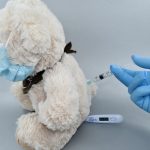The Pharmaceutical Society of Australia is attempting to expand the range of vaccines they would be able to provide, ahead of next year’s state budget.
The possibility of a COVID-19 jab in Australia has given pharmacists the opportunity to continue their campaign into immunisation territory, with the Pharmaceutical Society of Australia saying Victorian pharmacists could deliver all routine vaccines.
The PSA, in its 2021-22 pre-budget submission to the Victorian government this week, said vaccines delivered in the pharmacy setting should be expanded to include the COVID-19 vaccine, pneumococcal, varicella zoster, and influenza type B.
And the Victorian government has been far from immune to vaccine lobbying from the various pharmacy groups.
In April this year, the state government announced that Victorian pharmacists would be able to administer measles-mumps-rubella (MMR), meningococcal ACWY and pertussis-containing vaccines to individuals aged 15 and older.
Under the changes earlier this year, Victorian pharmacists were also given the green light to deliver vaccines outside of their pharmacy, which enabled pharmacy-led vaccination in workplaces and aged care facilities.
Now pushing for even greater scope in vaccine delivery, the PSA said it was “crucial” for pharmacist immunisers to administer all routine vaccines and the COVID-19 vaccine, when it became available.
“As trained pharmacist immunisers already have the skills and infrastructure to provide this service, this proposal could be implemented through simple amendments to the Victorian pharmacist-administered vaccination guidelines,” said PSA Victorian branch president, John Jackson.
“Increased access to vaccinations by more Victorians will reduce disease burden associated with vaccine-preventable diseases, reduce wait time for patients and increase access in rural and remote areas.”
But AMA vice president and GP, Dr Chris Moy, said this campaign proved the continuous effort by pharmacy groups to increase pharmacists’ scope of practice into prescribing and immunisations.
“Australia already has incredibly high rates of immunisation through general practice, and these immunisations are given in a safe environment – which is quite different to the pharmacy setting,” he said.
“GPs have rooms where we can make sure that the child is suitable for vaccination, which is important because some of these routine vaccines are live.
“And when a child comes in for vaccination, we’re also doing other things like assessing the child, and also their parents.”
Earlier this year, pharmacists were also found to be significantly underreporting the vaccines they had administered to the Australian Immunisation Register.
In June, a report from the National Centre for Immunisation Research and Surveillance found more than half of all pharmacy vaccinations between January 2016 and December 2019 were not logged on the AIR.
Dr Moy said GP vaccination offered an opportunity to monitor the general welfare of a child, which would not be possible in a pharmacy setting.
“And obviously, we’re in a much better position to handle adverse reactions,” he said.
But the major benefit of GP-led vaccination continues to be the continuity of care and the lack of corporate agenda, Dr Moy said.
“The argument from pharmacy is always about ‘convenience, convenience, convenience’ but it comes at the risk of continuity of care and the ability to assess child for other things as well, and that would be a huge loss,” he said.
“And there’s a potential conflict of interest in terms of (pharmacists) upselling other things as well, which is obviously a big risk within a pharmacy, but is not something that’s going to happen in a medical practice.”



